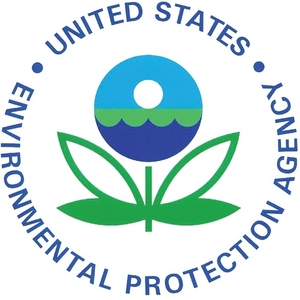Increased 2014 biodiesel mandate is subject of API letter to EPA

September 29, 2014
BY Ron Kotrba
The American Petroleum Institute sent a letter to U.S. EPA Administrator Gina McCarthy Sept. 26 indicating it has come to API’s attention that the agency is considering increasing the biomass-based diesel mandate in the 2014 renewable fuel standard (RFS) final rule, sent to the White House Office of Management and Budget last month.
In the letter, API’s Downstream and Industry Operations Group Director Robert Greco “reminded” McCarthy that the Clean Air Act explicitly prohibits EPA from increasing the biomass-based diesel mandate for the 2014 compliance year. “The Clean Air Act expressly compels EPA to provide a 14-month lead time when modifying the mandate,” Greco wrote. “Pursuant to the Clean Air Act’s unambiguous language, EPA was required to have finalized any increase to the 2014 biomass-based diesel mandate by Oct. 31, 2012. Furthermore, political gamesmanship has delayed the 2014 requirements, and as a result EPA’s authority to increase the 2016 biomass-based diesel standard is soon to pass.”
Greco said the administration is considering an increase to the biomass-based diesel standard for the 2014 compliance year “for political reasons.”
According to the National Biodiesel Board, API’s argument does not hold water. “Unfortunately this is more of the same from API trying to play politics with the RFS,” said NBB Vice President of Federal Affairs Anne Steckel. “Clearly everyone wishes this process had moved faster, but the courts have made clear that agencies can proceed with rule-makings even when statutory deadlines are not met.”
Advertisement
Advertisement
The EPA was late in issuing the biomass-based diesel volume for 2013, which was due by Nov. 1, 2011, but not issued until September 2012. “While API filed challenges to that determination to raise that very same claim, they declined to pursue them further, voluntarily dismissing their petition before the court and missing their chance to make their claims,” Steckel said, citing the Joint Stipulation of Dismissal, Am. Fuel & Petrochemical Mfrs. v. EPA, Nos. 12â€�1464 and 12â€�1465 (D.C. Cir. Nov. 20, 2013).
The EPA boosted the 2013 biomass-based diesel mandate under RFS from the required 1 billion gallons per year to 1.28 billion gallons per year, a volume U.S. biodiesel producers far surpassed last year. EPA's 2014-'15 RFS volume proposal, which was issued late last year, indicated a stalling of the mandate at 1.28 billion gallons through 2015, much to the dismay of the U.S. biodiesel industry.
Advertisement
Advertisement
Related Stories
The U.S. EPA on July 8 hosted virtual public hearing to gather input on the agency’s recently released proposed rule to set 2026 and 2027 RFS RVOs. Members of the biofuel industry were among those to offer testimony during the event.
The USDA’s Risk Management Agency is implementing multiple changes to the Camelina pilot insurance program for the 2026 and succeeding crop years. The changes will expand coverage options and provide greater flexibility for producers.
President Trump on July 4 signed the “One Big Beautiful Bill Act.” The legislation extends and updates the 45Z credit and revives a tax credit benefiting small biodiesel producers but repeals several other bioenergy-related tax incentives.
CARB on June 27 announced amendments to the state’s LCFS regulations will take effect beginning on July 1. The amended regulations were approved by the agency in November 2024, but implementation was delayed due to regulatory clarity issues.
SAF Magazine and the Commercial Aviation Alternative Fuels Initiative announced the preliminary agenda for the North American SAF Conference and Expo, being held Sept. 22-24 at the Minneapolis Convention Center in Minneapolis, Minnesota.
Upcoming Events










